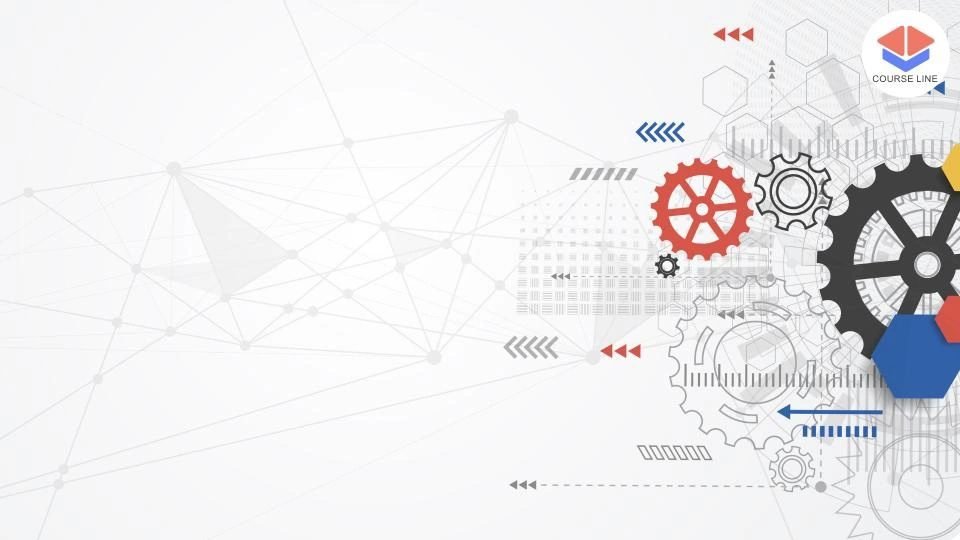Course Features
Price
Study Method
Online | Self-paced
Course Format
Reading Material - PDF, article
Duration
7 hours, 5 minutes
Qualification
No formal qualification
Certificate
At completion
Additional info
Coming soon
- Share
Overview
The Industrial Design Level 3 Advanced Diploma is a dynamic and hands-on course designed for aspiring product designers, engineers, and creative professionals eager to explore the intersection of design, function, and manufacturing. Whether you’re passionate about consumer electronics, furniture, automotive design, or sustainable product development, this course provides the knowledge and skills needed to succeed in today’s competitive design industry.
The course begins with an Introduction to Industrial Design, where students delve into the historical development of the field and explore key terminology and roles within the design process. Understanding how industrial design has shaped products over time sets the foundation for deeper learning.
In Design Principles and Elements, students gain a solid grasp of visual language, including form, color, space, and texture, while exploring how ergonomics and user-centered thinking influence product usability. The next phase introduces Sketching and Drawing Techniques, a core skill for every designer, covering freehand sketching, perspective, and advanced rendering methods.
From there, learners move into Computer-Aided Design (CAD), working with industry-standard software such as SolidWorks or AutoCAD. As the course progresses into Advanced CAD and 3D Modeling, students take on more complex modeling tasks, parametric design, and simulation, enhancing their ability to create production-ready designs.
The Materials and Manufacturing Processes lecture introduces various materials used in modern design—metals, plastics, composites—and explores sustainable material choices and popular manufacturing methods like CNC machining and injection molding. Practical experience is gained through Prototyping and Model Making, where students learn rapid prototyping, traditional mock-ups, and how to test and refine prototypes for functionality and form.
The course then emphasizes Design for Manufacture and Assembly (DFMA)—a critical area for industrial designers looking to bring their ideas to market efficiently. Students explore cost analysis, production planning, and real-world case studies to understand how design decisions affect manufacturing outcomes.
Design Project Management develops crucial soft skills such as project planning, collaboration, and risk management, while Innovation and Creativity in Design encourages out-of-the-box thinking with practical strategies and global product case studies. In Portfolio Development, students prepare for professional success by building a compelling portfolio, documenting projects, and practicing interview techniques.
The final stage, Final Design Project, brings together everything learned in the course. Students research, conceptualize, prototype, and present a full design solution for evaluation, mirroring the experience of working in a professional design studio.
Who is this course for?
The Industrial Design Level 3 Advanced Diploma is a dynamic and hands-on course designed for aspiring product designers, engineers, and creative professionals eager to explore the intersection of design, function, and manufacturing. Whether you’re passionate about consumer electronics, furniture, automotive design, or sustainable product development, this course provides the knowledge and skills needed to succeed in today’s competitive design industry.
The course begins with an Introduction to Industrial Design, where students delve into the historical development of the field and explore key terminology and roles within the design process. Understanding how industrial design has shaped products over time sets the foundation for deeper learning.
In Design Principles and Elements, students gain a solid grasp of visual language, including form, color, space, and texture, while exploring how ergonomics and user-centered thinking influence product usability. The next phase introduces Sketching and Drawing Techniques, a core skill for every designer, covering freehand sketching, perspective, and advanced rendering methods.
From there, learners move into Computer-Aided Design (CAD), working with industry-standard software such as SolidWorks or AutoCAD. As the course progresses into Advanced CAD and 3D Modeling, students take on more complex modeling tasks, parametric design, and simulation, enhancing their ability to create production-ready designs.
The Materials and Manufacturing Processes lecture introduces various materials used in modern design—metals, plastics, composites—and explores sustainable material choices and popular manufacturing methods like CNC machining and injection molding. Practical experience is gained through Prototyping and Model Making, where students learn rapid prototyping, traditional mock-ups, and how to test and refine prototypes for functionality and form.
The course then emphasizes Design for Manufacture and Assembly (DFMA)—a critical area for industrial designers looking to bring their ideas to market efficiently. Students explore cost analysis, production planning, and real-world case studies to understand how design decisions affect manufacturing outcomes.
Design Project Management develops crucial soft skills such as project planning, collaboration, and risk management, while Innovation and Creativity in Design encourages out-of-the-box thinking with practical strategies and global product case studies. In Portfolio Development, students prepare for professional success by building a compelling portfolio, documenting projects, and practicing interview techniques.
The final stage, Final Design Project, brings together everything learned in the course. Students research, conceptualize, prototype, and present a full design solution for evaluation, mirroring the experience of working in a professional design studio.
Requirements
The Industrial Design Level 3 Advanced Diploma is a dynamic and hands-on course designed for aspiring product designers, engineers, and creative professionals eager to explore the intersection of design, function, and manufacturing. Whether you’re passionate about consumer electronics, furniture, automotive design, or sustainable product development, this course provides the knowledge and skills needed to succeed in today’s competitive design industry.
The course begins with an Introduction to Industrial Design, where students delve into the historical development of the field and explore key terminology and roles within the design process. Understanding how industrial design has shaped products over time sets the foundation for deeper learning.
In Design Principles and Elements, students gain a solid grasp of visual language, including form, color, space, and texture, while exploring how ergonomics and user-centered thinking influence product usability. The next phase introduces Sketching and Drawing Techniques, a core skill for every designer, covering freehand sketching, perspective, and advanced rendering methods.
From there, learners move into Computer-Aided Design (CAD), working with industry-standard software such as SolidWorks or AutoCAD. As the course progresses into Advanced CAD and 3D Modeling, students take on more complex modeling tasks, parametric design, and simulation, enhancing their ability to create production-ready designs.
The Materials and Manufacturing Processes lecture introduces various materials used in modern design—metals, plastics, composites—and explores sustainable material choices and popular manufacturing methods like CNC machining and injection molding. Practical experience is gained through Prototyping and Model Making, where students learn rapid prototyping, traditional mock-ups, and how to test and refine prototypes for functionality and form.
The course then emphasizes Design for Manufacture and Assembly (DFMA)—a critical area for industrial designers looking to bring their ideas to market efficiently. Students explore cost analysis, production planning, and real-world case studies to understand how design decisions affect manufacturing outcomes.
Design Project Management develops crucial soft skills such as project planning, collaboration, and risk management, while Innovation and Creativity in Design encourages out-of-the-box thinking with practical strategies and global product case studies. In Portfolio Development, students prepare for professional success by building a compelling portfolio, documenting projects, and practicing interview techniques.
The final stage, Final Design Project, brings together everything learned in the course. Students research, conceptualize, prototype, and present a full design solution for evaluation, mirroring the experience of working in a professional design studio.
Career path
The Industrial Design Level 3 Advanced Diploma is a dynamic and hands-on course designed for aspiring product designers, engineers, and creative professionals eager to explore the intersection of design, function, and manufacturing. Whether you’re passionate about consumer electronics, furniture, automotive design, or sustainable product development, this course provides the knowledge and skills needed to succeed in today’s competitive design industry.
The course begins with an Introduction to Industrial Design, where students delve into the historical development of the field and explore key terminology and roles within the design process. Understanding how industrial design has shaped products over time sets the foundation for deeper learning.
In Design Principles and Elements, students gain a solid grasp of visual language, including form, color, space, and texture, while exploring how ergonomics and user-centered thinking influence product usability. The next phase introduces Sketching and Drawing Techniques, a core skill for every designer, covering freehand sketching, perspective, and advanced rendering methods.
From there, learners move into Computer-Aided Design (CAD), working with industry-standard software such as SolidWorks or AutoCAD. As the course progresses into Advanced CAD and 3D Modeling, students take on more complex modeling tasks, parametric design, and simulation, enhancing their ability to create production-ready designs.
The Materials and Manufacturing Processes lecture introduces various materials used in modern design—metals, plastics, composites—and explores sustainable material choices and popular manufacturing methods like CNC machining and injection molding. Practical experience is gained through Prototyping and Model Making, where students learn rapid prototyping, traditional mock-ups, and how to test and refine prototypes for functionality and form.
The course then emphasizes Design for Manufacture and Assembly (DFMA)—a critical area for industrial designers looking to bring their ideas to market efficiently. Students explore cost analysis, production planning, and real-world case studies to understand how design decisions affect manufacturing outcomes.
Design Project Management develops crucial soft skills such as project planning, collaboration, and risk management, while Innovation and Creativity in Design encourages out-of-the-box thinking with practical strategies and global product case studies. In Portfolio Development, students prepare for professional success by building a compelling portfolio, documenting projects, and practicing interview techniques.
The final stage, Final Design Project, brings together everything learned in the course. Students research, conceptualize, prototype, and present a full design solution for evaluation, mirroring the experience of working in a professional design studio.
-
- History and Evolution of Industrial Design 00:10:00
- Key Concepts and Terminology 00:10:00
- The Role of an Industrial Designer 00:10:00
-
- Basic Design Principles 00:10:00
- Elements of Design (Line, Shape, Color, Texture, Space) 00:10:00
- Ergonomics and Human Factors 00:10:00
- Basic Sketching Techniques 00:10:00
- Perspective Drawing 00:10:00
- Rendering and Shading 00:10:00
- Advanced 3D Modeling Techniques 00:10:00
- Parametric Design 00:10:00
- Simulation and Analysis 00:10:00
- Rapid Prototyping Techniques 00:10:00
- Traditional Model Making 00:10:00
- Testing and Evaluation of Prototypes 00:10:00
- Project Planning and Time Management 00:10:00
- Team Collaboration and Communication 00:10:00
- Risk Management and Problem Solving 00:10:00
- Building a Professional Portfolio 00:10:00
- Presenting and Documenting Design Work 00:10:00
- Preparing for Job Interviews 00:10:00
- Exam of Industrial Design Level 3 Advanced Diploma 00:50:00

No Reviews found for this course.
Is this certificate recognized?
Yes, our premium certificate and transcript are widely recognized and accepted by embassies worldwide, particularly by the UK embassy. This adds credibility to your qualification and enhances its value for professional and academic purposes.
I am a beginner. Is this course suitable for me?
Yes, this course is designed for learners of all levels, including beginners. The content is structured to provide step-by-step guidance, ensuring that even those with no prior experience can follow along and gain valuable knowledge.
I am a professional. Is this course suitable for me?
Yes, professionals will also benefit from this course. It covers advanced concepts, practical applications, and industry insights that can help enhance existing skills and knowledge. Whether you are looking to refine your expertise or expand your qualifications, this course provides valuable learning.
Does this course have an expiry date?
No, you have lifetime access to the course. Once enrolled, you can revisit the materials at any time as long as the course remains available. Additionally, we regularly update our content to ensure it stays relevant and up to date.
How do I claim my free certificate?
I trust you’re in good health. Your free certificate can be located in the Achievement section. The option to purchase a CPD certificate is available but entirely optional, and you may choose to skip it. Please be aware that it’s crucial to click the “Complete” button to ensure the certificate is generated, as this process is entirely automated.
Does this course have assessments and assignments?
Yes, the course includes both assessments and assignments. Your final marks will be determined by a combination of 20% from assignments and 80% from assessments. These evaluations are designed to test your understanding and ensure you have grasped the key concepts effectively.
Is this course accredited?
We are a recognized course provider with CPD, UKRLP, and AOHT membership. The logos of these accreditation bodies will be featured on your premium certificate and transcript, ensuring credibility and professional recognition.
Will I receive a certificate upon completion?
Yes, you will receive a free digital certificate automatically once you complete the course. If you would like a premium CPD-accredited certificate, either in digital or physical format, you can upgrade for a small fee.
Course Features
Price
Study Method
Online | Self-paced
Course Format
Reading Material - PDF, article
Duration
7 hours, 5 minutes
Qualification
No formal qualification
Certificate
At completion
Additional info
Coming soon
- Share
HGV Mechanic Level 5 Advanced Diploma
Course Line243£490.00Original price was: £490.00.£14.99Current price is: £14.99.Award in Education and Training (AET) Level 3 Advanced Diploma
Course Line420£490.00Original price was: £490.00.£14.99Current price is: £14.99.RSPH: Level 2 Award in Nutrition & Health (CPD Focus)
Course Line237£490.00Original price was: £490.00.£14.99Current price is: £14.99.





